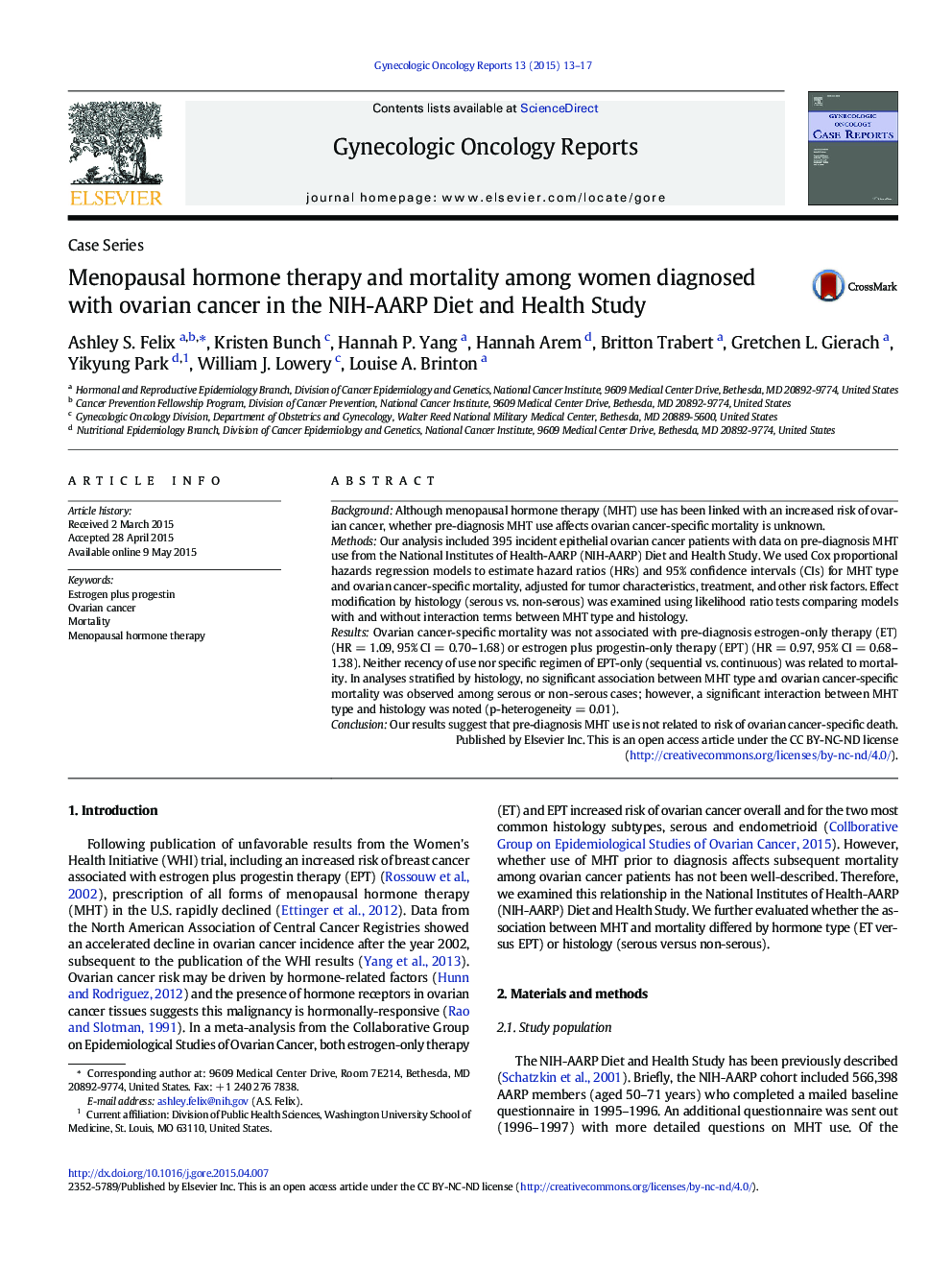| Article ID | Journal | Published Year | Pages | File Type |
|---|---|---|---|---|
| 3951158 | Gynecologic Oncology Reports | 2015 | 5 Pages |
•We examined pre-diagnosis use of menopausal hormone therapy (MHT) and ovarian cancer-specific mortality.•Estrogen-only and estrogen plus progestin-only therapy were unrelated to ovarian cancer-specific death.•Recency of MHT use was unrelated to ovarian cancer-specific death.
BackgroundAlthough menopausal hormone therapy (MHT) use has been linked with an increased risk of ovarian cancer, whether pre-diagnosis MHT use affects ovarian cancer-specific mortality is unknown.MethodsOur analysis included 395 incident epithelial ovarian cancer patients with data on pre-diagnosis MHT use from the National Institutes of Health-AARP (NIH-AARP) Diet and Health Study. We used Cox proportional hazards regression models to estimate hazard ratios (HRs) and 95% confidence intervals (CIs) for MHT type and ovarian cancer-specific mortality, adjusted for tumor characteristics, treatment, and other risk factors. Effect modification by histology (serous vs. non-serous) was examined using likelihood ratio tests comparing models with and without interaction terms between MHT type and histology.ResultsOvarian cancer-specific mortality was not associated with pre-diagnosis estrogen-only therapy (ET) (HR = 1.09, 95% CI = 0.70–1.68) or estrogen plus progestin-only therapy (EPT) (HR = 0.97, 95% CI = 0.68–1.38). Neither recency of use nor specific regimen of EPT-only (sequential vs. continuous) was related to mortality. In analyses stratified by histology, no significant association between MHT type and ovarian cancer-specific mortality was observed among serous or non-serous cases; however, a significant interaction between MHT type and histology was noted (p-heterogeneity = 0.01).ConclusionOur results suggest that pre-diagnosis MHT use is not related to risk of ovarian cancer-specific death.
